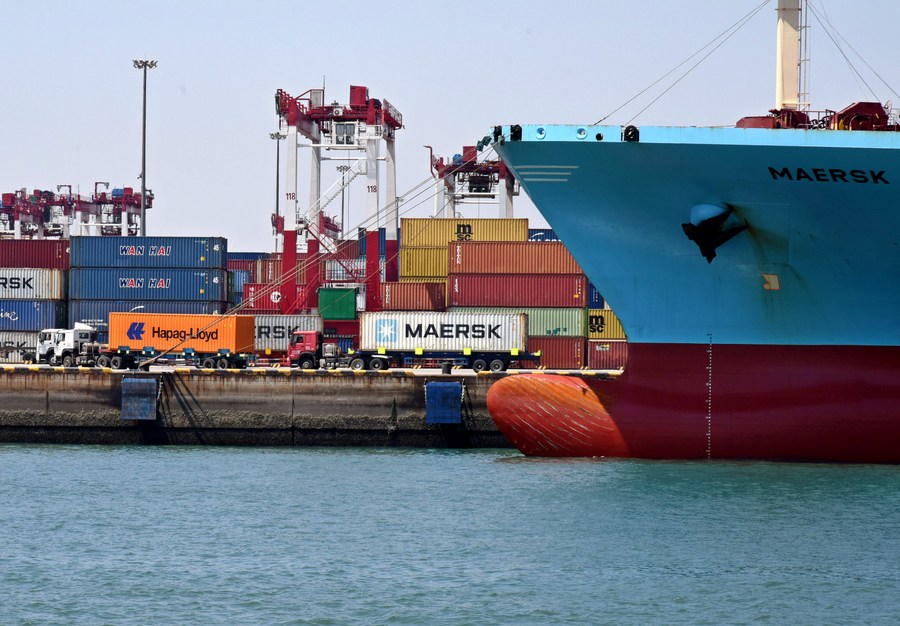
In the face of increasing external and internal disruption factors, China has adopted a slew of targeted measures to bolster the growth of its foreign trade sector.

Photo taken on May 1, 2022 shows a container vessel docking at the Qianwan Container Terminal in Qingdao, east China's Shandong Province. (Xinhua/Li Ziheng)
In an effort to help foreign trade firms navigate difficulties, the State Council, China's cabinet, issued a guideline last month to improve services and provide more financial and fiscal support for the enterprises.
To add further stability to the sector, 27 government departments, including China's top economic planner, the commerce ministry and the central bank, have rolled out relevant policies, which mainly focus on smoothing foreign trade logistics, strengthening financial support for foreign trade firms and stabilizing the industrial and supply chains of foreign trade.
These measures aim to secure market entities, stabilize their orders and markets, and protect their confidence, Vice Commerce Minister Wang Shouwen told a press conference on Wednesday.
In the first four months, China's total exports and imports expanded 7.9 percent year on year to 12.58 trillion yuan (about 1.89 trillion U.S. dollars). In U.S. dollar terms, the growth rate hit 10.1 percent year on year.
The growth came on the basis of a high comparison base last year, and the country's foreign trade sustains sound conditions for further growth, Wang said.
He, however, cautioned that foreign trade firms continue to face challenges such as logistics problems and soaring raw material prices.
There are still uncertainties for the foreign trade sector as the global economic recovery remains fragile and demand growth continues to be slow, he said, adding that rising global inflation will reduce consumer spending on foreign goods.
Regarding financial aid, the People's Bank of China has continuously lowered the financing costs for the real economy, and provided targeted help for foreign trade firms, Zhou Yu, an official with the bank, said at the press conference.
Since the end of last year, China has cut the one-year and over-five-year loan prime rate, the market-based benchmark lending rate, by 15 basis points and 20 basis points, respectively, which contributed to a reduction in financing costs, Zhou noted.
China has also beefed up export credit insurance services for foreign trade firms to help them better forestall risks, said Li Xingqian, an official with the commerce ministry.
By the end of May, China Export and Credit Insurance Corporation (Sinosure), the country's only policy-oriented insurer specializing in export credit insurance, has provided insurance services for some 149,000 foreign trade firms, 7.5 percent more than the number in the same period last year, Li added.
In the next step, the commerce ministry will work with other departments to further strengthen export credit insurance services for foreign trade companies, especially for the medium and small firms, Li said.
To help foreign trade enterprises secure their orders, China will hold online fairs and support the development of new trade models, including cross-border e-commerce, Wang noted.